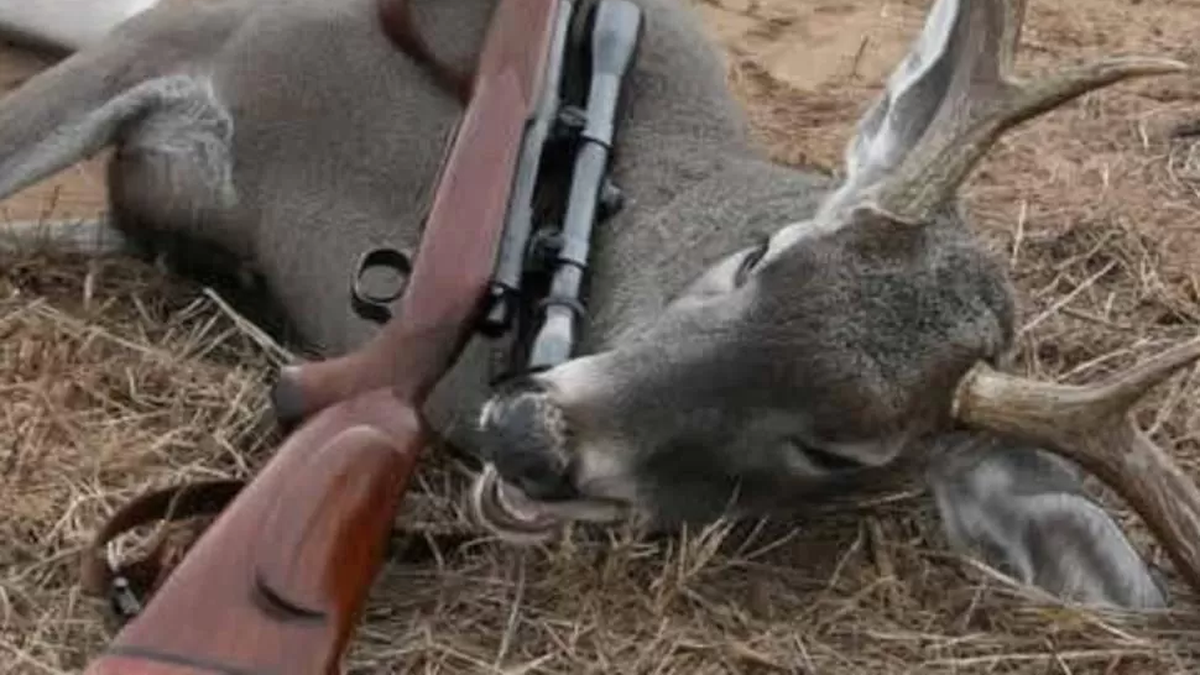Among other aspects, this project Law states that international trophy hunting has cascading negative direct and indirect impacts on both people and society. wildlife. Drives corruption of institutional behavior, biological and ecological degradation and depletionobstruction of innovation and investment in alternative industries or resource uses, and the institutionalization of social injustices in many range States. “It is the exploitation irresponsible for animal biodiversityin pursuit of a short-term benefit for a very minority group,” he said. Kai Pacha by Pumakawa.
Furthermore, during the preparation process of the “trophy”, Potentially risky waste is generated for the animal, human and environmental ecosystem. Currently, “Argentina is the 5th world exporterhe 3rd importer in Latin America and the 15th trophy consumer hunting of mammal species threatened by overexploitation through trade, which implies cascading consequences for the genetic integrity and survival of target species and the health of ecosystems,” he highlighted. Juan Pessini (NGO Eco House).
Globally, there has been a sharp shift away from the trophy hunting industry. Many countries, such as Colombia, Costa Rica, India, Singapore, South Sudan and others, already prohibit trophy hunting and/or trade in its entirety or to a significant degree, while others, such as Argentina, Australia, Belgium, Canada, Finland, France, the Netherlands, the United States and others, have some level of national trade restrictions for hunting trophies insufficient but aligned to the CITES (Convention on International Trade in Endangered Species of Wild Fauna and Flora).
Private industry has also emerged as a world leader in sustainability and environmental responsibility with 45 transportation companies which prohibit the transport of some or all hunting trophies on their carriers, including airlines of the world’s top five airline groups and the EU’s top three airline groups. Along these lines, in our country, Argentine Airlines prohibits the transportation of hunting trophies on all company flights, both domestic and international flights.
Other countries that have taken steps, or are in the process, to limit or prohibit by law the importation of hunting trophies are France, the Netherlands, Australia, Belgium and the United Kingdom. Notably, the UK Parliament voted to ban the import of endangered species trophies in 2022, although the measure still faces challenges. Italy is also considering similar restrictions. However, at a global level, the lack of consensus and pressure from hunting industry continue to delay a more widespread ban.
Globally, USA is the main importer of hunting trophies. Thousands of trophies reach its borders every year, feeding a million-dollar industry that encourages the killing of iconic African species for commercialization. Similar situations occur in Germany, Spain and Canada. “At Humane Society International (HSI) we seek promote legislation to the States to prohibit imports because, without hunting trophies, there is no indiscriminate killing”explains Marina RatchfordHSI consultant for initiatives in Argentina.
“It is not conservation, it is cruelty of humans towards animals in conditions of total disadvantage. The only motivation is the vanity of the hunter. Animals suffer unnecessarily, cruelly killed with methods that do not guarantee a quick and humane death,” highlighted Marina Rathford of HSI. In this framework, with the aim of putting an end to a practice that threatens the population structure of the speciesgenetic erosion, phenotypic changes and alterations in the natural balance, Humane Society Internationala leader in animal protection, carries out awareness-raising actions so that States understand the importance of putting an end to the entry of these “trophies” and stopping their commercialization.
“He macabre trophy hunting business”, with photographs by the award-winning photojournalist Britta Jaschinskiis an example of these actions. This temporary photographic exhibition promotes the impact on political sectors, in support of legislative initiatives to ban the import of hunting trophies. The first temporary exhibition was recently inaugurated in Rome, in the prestigious location of the Chamber of Deputies of the Italian Parliament and in Warsaw, addressed to the Polish Parliament.
National deputies Soledad Carrizo, Gerardo Cipolini, Julio Cobos, Roberto Sánchez, Natalia Sarapura, Pamela Verasay, Roxana Reyes, Rodrigo De Loredo, Gabriela Brouwer de Koning participated in the drafting of the bill; and the organizations Pumakawa, Human Society International, Cullunche Foundation, RENACE Argentina, RACTES, Acción Salvaje, Universidad Nacional de Córdoba, Mundo Apart, Yo No Mato Serpientes Education for Conservation, Galgos por la Libertad, Fito Zoo, UVLAR, Pumas Chile, Kwoon, Biored Foundation, PEU, Patio Mundo, Vital Tree, CEYDAS, Fotonaturaleza Sergio Massaro School, Naturalists in Action, SOS Animal Foundation, AMOR, CIO, Animal Shelter, Panthera Africa, ANH Law Institute, Idea Farm, ANIA, Futuro, Ecohouse, Aiken Foundation, Made by Us, Disaster Veterinarians Network, Saint Martin Bar Association, Human Hands, Ashoka, Yaguareté Network, Solidarity Network, Dattoli Law Firm, Dante Piesco Foundation, Dandelion, Víctor Mochkofsky, Mundo Vivo Organization, Pumas Project of las Pampas, Fundación Zorba Argentina, OHANA, Generar Eco, María Clara Lábaque, Miriam Rodríguez Salvatierra, Ayurguide, We Are All Refugees, Departamental Guaraní San Pedro Jujuy, Bioparque La Plata, Va por sus Derechos, AAPN, Antispecies Animal Justice.
Source: Ambito
I am an author and journalist who has worked in the entertainment industry for over a decade. I currently work as a news editor at a major news website, and my focus is on covering the latest trends in entertainment. I also write occasional pieces for other outlets, and have authored two books about the entertainment industry.




